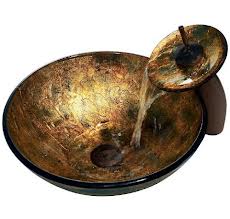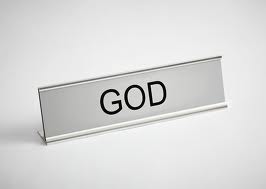Sadly, I’ve never read a book by Joan Didion. She’s arguably one of the best known and much heralded novelists of our time. I own at least two of her books and I’ve thought about reading them several times, especially The Year of Magical Thinking. She’s also a transplanted New Yorker who loves New York, perhaps even more than I do, which automatically gives her a plus sign in my book of people I like and dislike. Yes, I have a book. Don’t you?
One of the reasons I haven’t read Ms. Didion’s work is because she is a dense writer. I sense that you really have to think when you read her novels; not altogether happy thoughts I might add. And despite the amount of time I spend on Facebook lately or ambling through the internet for news and random information I’m actually not a person who has a great deal of discretionary time on my hands.
I know that I’ll eventually read and enjoy one or several of Ms. Didion’s books, the same way I know much of what I’ve surmised about her. I’ve read many, many quotes from her books repeatedly. In a few short sentences Ms. Didion can send me off into tangents that are difficult to come back from without breadcrumbs.
I’ll give you an example of one quote that’s been running around in my head in relation to the question I’ve posed: Writer = God or Vessel? Here’s the quote from Joan Didion’s book The White Album:
“We tell ourselves stories in order to live. The princess is caged in the consulate. The man with the candy will lead the children into the sea. The naked woman on the ledge outside the window on the sixteenth floor is a victim of accidie, or the naked woman is an exhibitionist, and it would be ‘interesting’ to know which. We tell ourselves that it makes some difference whether the naked woman is about to commit a mortal sin or is about to register a political protest or is about to be, the Aristophanic view, snatched back to the human condition by the fireman in priest’s clothing just visible in the window behind her, the one smiling at the telephoto lens. We look for the sermon in the suicide, for the social or moral lesson in the murder of five. We interpret what we see, select the most workable of the multiple choices. We live entirely, especially if we are writers, by the imposition of a narrative line upon disparate images, by the ‘ideas’ with which we have learned to freeze the shifting phantasmagoria — which is our actual experience.”
Accidie is a great word, isn’t it? I thought it was a typo the first time I read it so I looked it up. It means sloth or slothfulness. Imagine it. The naked woman on the ledge of the sixteenth floor is actually a victim of slothfulness? That Ms. Didion may be intense but she’s also very witty.
The part of the quote that stands out for me though is where she suggests that if you are a writer you live by “the imposition of the narrative line.” In other words we writers are burdened with accounting for what we create from the pictures that plague us and our mind’s eye. I’ve heard that burden described in very different ways by so many writers. For me it often begins with an almost fugue state that can instantly shift to become a moment of rare clarity where the story and the sermon are one and it magically has a beginning, middle, and end – not to mention a fine cast of fully clothed characters.
I recently suggested to an author friend of mine that was lamenting a kind of block she was dealing with to remember that she was the vessel. It seems like a flippant remark to me now but at the time it was meaningful for me because that is exactly how I felt while I wrote a story recently. It was as if I was merely the conduit by which these incessant characters and the story itself lived.
When I proudly mentioned my fluffy description of a writer as vessel to my favorite copyeditor, he scoffed at me. It’s one of the reasons he’s my favorite copyeditor actually, he scoffs well. “You’re God,” he said adamantly, “you can give your character spina bifida, change his skin color, throw him off a building and resurrect him from the dead. You are God.” That last time he called me God he said it with a cocked eyebrow and a look that suggested God must be an idiot.
And surprisingly I guess I was a bit idiotic because I had absolutely never thought of being a writer in that way before. I guess I preferred the idea of being “touched by an angel” rather than being George Burns — or in my case Morgan Freeman. Whichever, I still have a lot to deal with, from “disparate images” and “the shifting phantasmagoria” alone. They aren’t going away either. As a writer and aspiring author I do count myself lucky for that.
But I am curious to hear what you think. Is the writer God or vessel? Or is the writer some unrelenting amalgamation of the two? You won’t be surprised to hear that I think I already know what Joan Didion would say.


I think it changes. Some stories feel like you’ve channeled them (vessel) and others you can be very intentional about creating (god). And yes, Joan Didion is a dense writer, but I encourage you to read her–you will feel your brain reaching and stretching, and the way she plays with words no one ever uses will give you a tingle up your spine.
LikeLike
You’re probably right Nia. The writer’s role probably does flip depending on nothing in particular. And I will definitely read Didion, no doubt about it. I think I’ve been saving reading her books the way I might save a really nice bottle of wine. Aging it to perfection so to speak, except of course I’m the one that’s aging.
LikeLike
🙂
LikeLike
Hmmm, great post, lily. Love it! I have to say, that I could never take the title of God. Not even for my work. And the reason I say this is not only because of my religious/spiritual convictions that tends to stay away from idolization of man but because in spite of the fact that I am creating work, God created me. I am His vessel always. The stories that come into my head may be a result of my own burgeoning creativity but I didn’t create that gift, it was given. So I am always a vessel. The Master of all, for me gave me the gift to share through my writing. And while I have the power to make the changes to the story, that is no different than me having control over my choices in life. And yet, I am still no God.
LikeLike
Thanks for the kind words Aja and you’ve made a very interesting point. Perhaps it is my spiritual process as well as my albeit deeply entrenched and historical ties to Christianity that kept me from thinking of myself as God, yet immediately had no difficulty identifying as vessel. Thing is though during my religious journey I have often thought that if God made us in his own image then we are, in fact, very like him. Creativity is part and parcel of the gift sure, but the real gift might be the same free will God has, to choose how the gifts are used and shared.
LikeLike
the best writing i have done was pure vessel…i once sat down…during a blizzard in january, while going thru a dramatic break up and started writing what i thought would be 20 30 page essay…it went on that whole weekend..and kept going…i finally ran out of gas after about a hundred pages..but it felt like i was strapped in for a ride and was being taken whether i liked or not..in the end i wound up with a 250 page first draft for a novel…i don’t think i had anything to do with writing it..all i did was get kidnapped by it….wow
LikeLike
250 pages in a weekend? That sounds like a fun ride Rossi or at least a cathartic one. My vessel trips don’t last that long. They more resemble a quick romp in the fields with one of my characters chasing me and talking non-stop for twenty minutes then disappearing like they were snatched up by a space ship. And I’m left alone with a pretty dumb look on my face.
LikeLike
I love this post Lily Java! Perhaps it’s an amalgamation – but I guess because I’m neither a particularly religious person, nor an author, I’ve ALWAYS thought of writers as the Creators of their universe. The power they wield in that universe is entirely theirs to do as they please. Killing people off, putting their characters in all kinds of precarious situations just because they want to and saving them whenever the spirit moves them to? Sounds like a deity to me.
LikeLike
Glad you enjoyed the post. And I hear you but I tend to think it’s a merger of both sides depending on what you’re writing. In thinking about this today and discussing it with people I suspect it’s liberating — the knowledge that as the writer we have total control — and that the times we think we’re a vessel is just our imaginations taking over our consciousness because it’s reached a saturation point. I do think that’s what Didion was talking about when she said that “we interpret what we see, select the most workable of multiple choices.” Sometimes that simplistic act of making a choice takes over in a way and we give up control and let our intuition and experiential knowledge take over. Like really great chess players who can easily see 10-12 moves ahead.
LikeLike
I’m always vessel, never God. Great post Lily!
LikeLike
Thanks for the kind words Stephanie. May your vessel always be full my friend.
LikeLike